Are you looking for a mixer shower but not sure what it is? If so, you've come to the right place.
Shower mixers blend hot and cold water together before it reaches your body, like magic. In this blog, we will discuss shower mixers to help you understand everything about them and find the best option for your bathroom. Let's begin.
First, What Exactly Is A Mixer Shower?
A mixer shower is a bathroom shower system that mixes hot and cold water to give a comfortable and steady water temperature. Unlike electric showers that heat water on demand using an electric heating element drawing from your cold supply, a gas boiler is employed to provide the necessary warmth for a shower mixer.
How Do Shower Mixers Work?
Mixer showers are smartly designed bathroom shower systems that work their magic within a valve. They mix the hot and cold water to deliver a balanced and comfortable temperature.
In the case of shower mixers, the water comes from the shower head with more force than electric showers. However, the exact water flow depends on the pressure of your water system.
You can control both the water flow and temperature either through a shower valve or by adjusting your bath taps, granting you precise control over your showering conditions.
Advantages
Mixer showers represent a contemporary showering solution suitable for a wide range of shower enclosures, accommodating various shower heads and accessories.
They easily fit into any bathroom or shower design and work well with both high and low-pressure water systems. Here are the key benefits of shower mixers.
- Consistent Temperature: Shower mixtures maintain water temperature regardless of simultaneous water usage elsewhere in the home.
- Enhanced Power: In comparison to electric showers, shower mixtures often deliver greater water pressure and flow.
- Safety First: Showers Mixers significantly reduce the risk of scalding, making them family-friendly.
- Ease of Installation and Operation: Shower mixtures are straightforward to install and simple to use. They are ideal for individuals with ample hot water supply or those utilising gravity-fed systems.
Types Of Mixer Showers
Broadly speaking, there are two types of shower mixers: thermostatic mixers and manual mixers. Unlike thermostatic mixers that automatically maintain a consistent water temperature, manual mixers require manual adjustment to blend hot and cold water.
Thermostatic shower designs, on the other hand, incorporate a specialised valve to ensure water remains at a constant and safe temperature. Families who are concerned about the risk of scalding, especially when young children are involved, consider thermostatic showers an excellent choice.
Mixer showers can be further divided based on their control features.
Single Lever Mixer: These feature a single lever that you can move up and down to control water flow and adjust the temperature. You can choose between exposed showers, where both plumbing and the shower valve are visible on the wall, or concealed showers, which hide plumbing fixtures behind the wall while keeping the shower lever valve accessible.
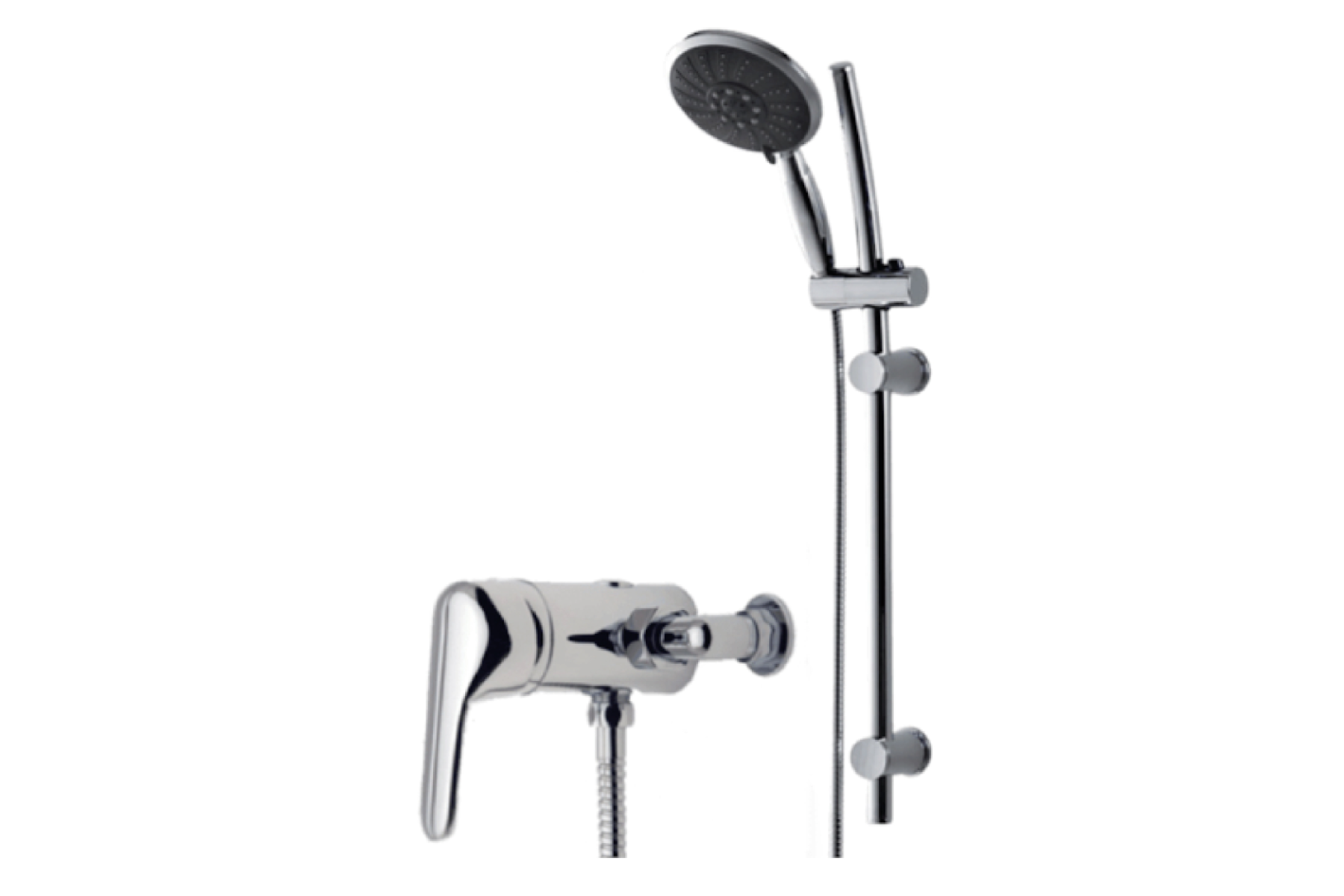
Sequential Mixer: This type is the simplest to use, with a single rotary control. Turning the control activates the shower, and the more you turn it, the hotter the temperature becomes. However, you cannot regulate the flow rate. Like single lever mixer showers, sequential mixers come in both exposed and concealed forms.
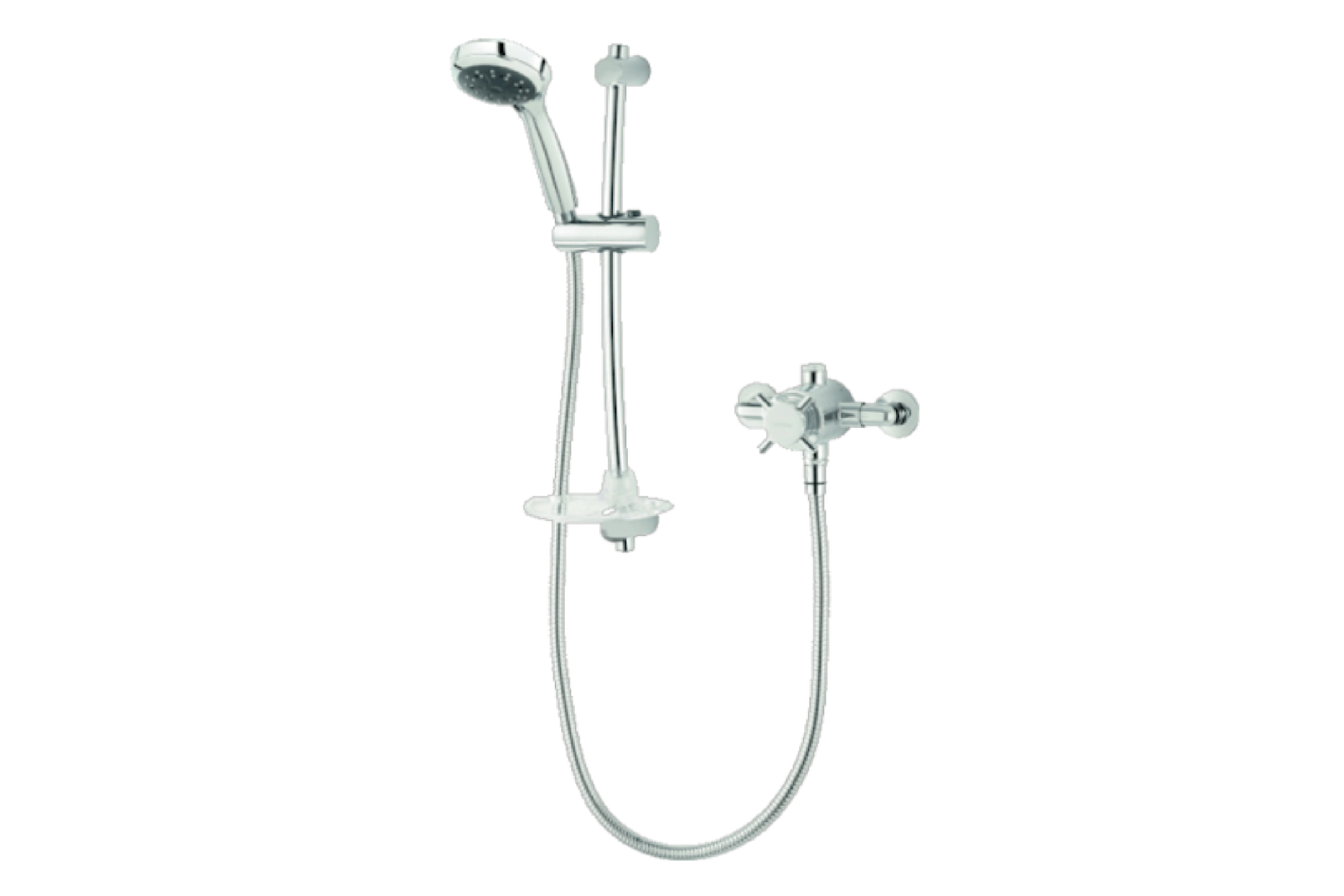
Dual Control Mixer: These showers offer two separate controls, one for flow and another for temperature. Some models replace flow controls with diverter valves, allowing you to switch water flow between two shower heads for a bath filler. Typically, dual control mixers are concealed.
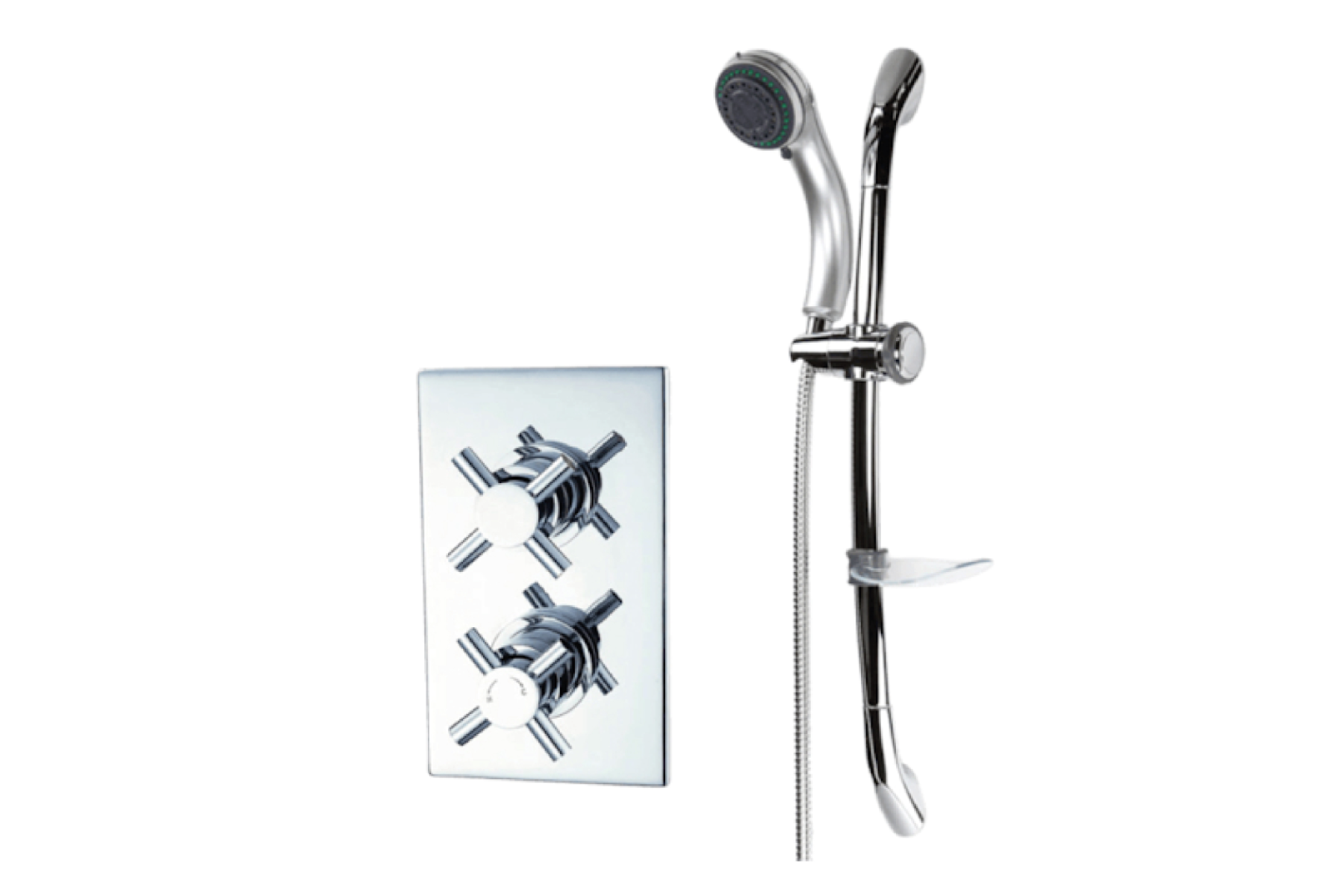
Bar Mixer Showers have two controls positioned on a single bar. One control regulates water flow, while the other manages temperature. Like other mixer showers, they can incorporate diverter valves for switching water between an overhead shower head and a separate shower handset. Bar mixers are available in both vertical and horizontal designs. overhead shower head and a separate shower handset. Bar mixers are available in both vertical and horizontal designs.
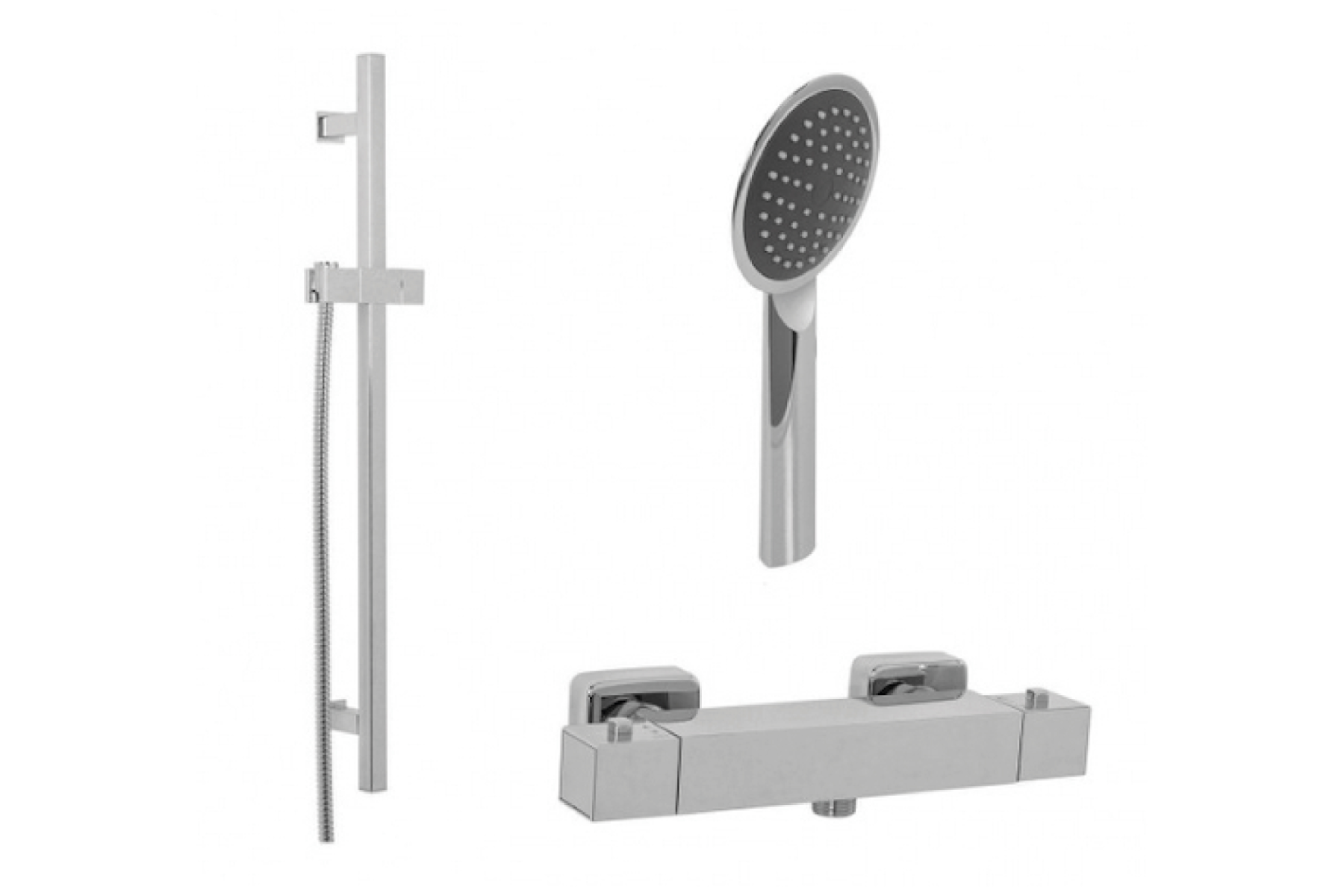
Concentric Mixer: These models feature two rotary-style controls stacked atop each other. The outer control manages water flow, while the inner control adjusts temperature. You can preset your preferred temperature with the inner control, ensuring your next shower is at the ideal temperature. As usual, you can find both exposed and concealed options.
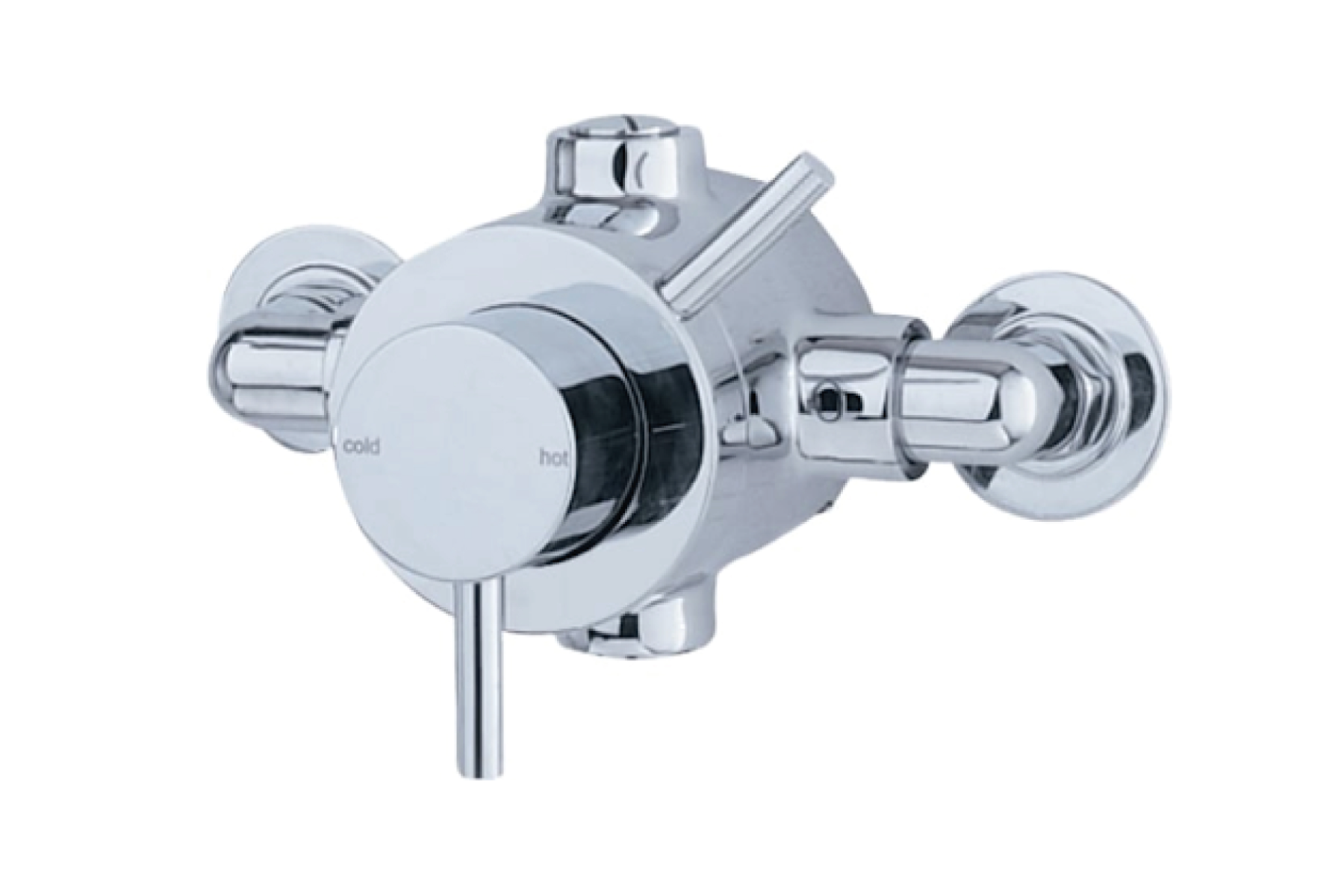
Mixer Showers have three installation types: Exposed Valve, Built-In Rigid, and Built-In Valve. Here is a brief overview of each type:
Exposed Valve Mixer Shower:These showers are affixed inside the showering space, with pipes that extend through the wall. This design exposes the shower controls and piping for easy access and adjustment.
These showers are affixed inside the showering space, with pipes that extend through the wall. This design exposes the shower controls and piping for easy access and adjustment.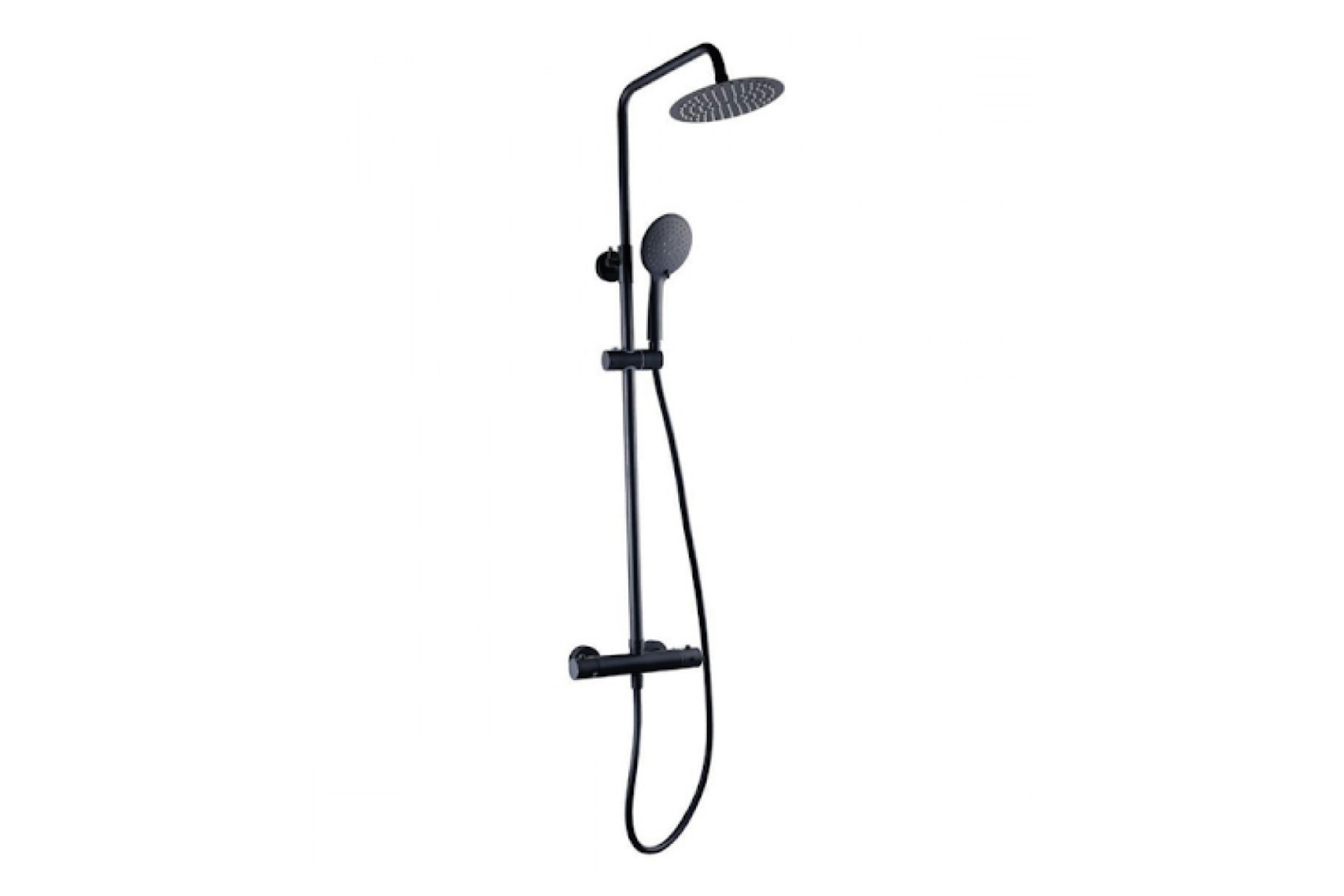
Build In Rigid Mixer Showers: Built directly into the wall, these mixer showers feature only the shower control and a fixed, unmovable shower head visible on the surface. This minimalist installation creates a sleek and unobtrusive appearance.
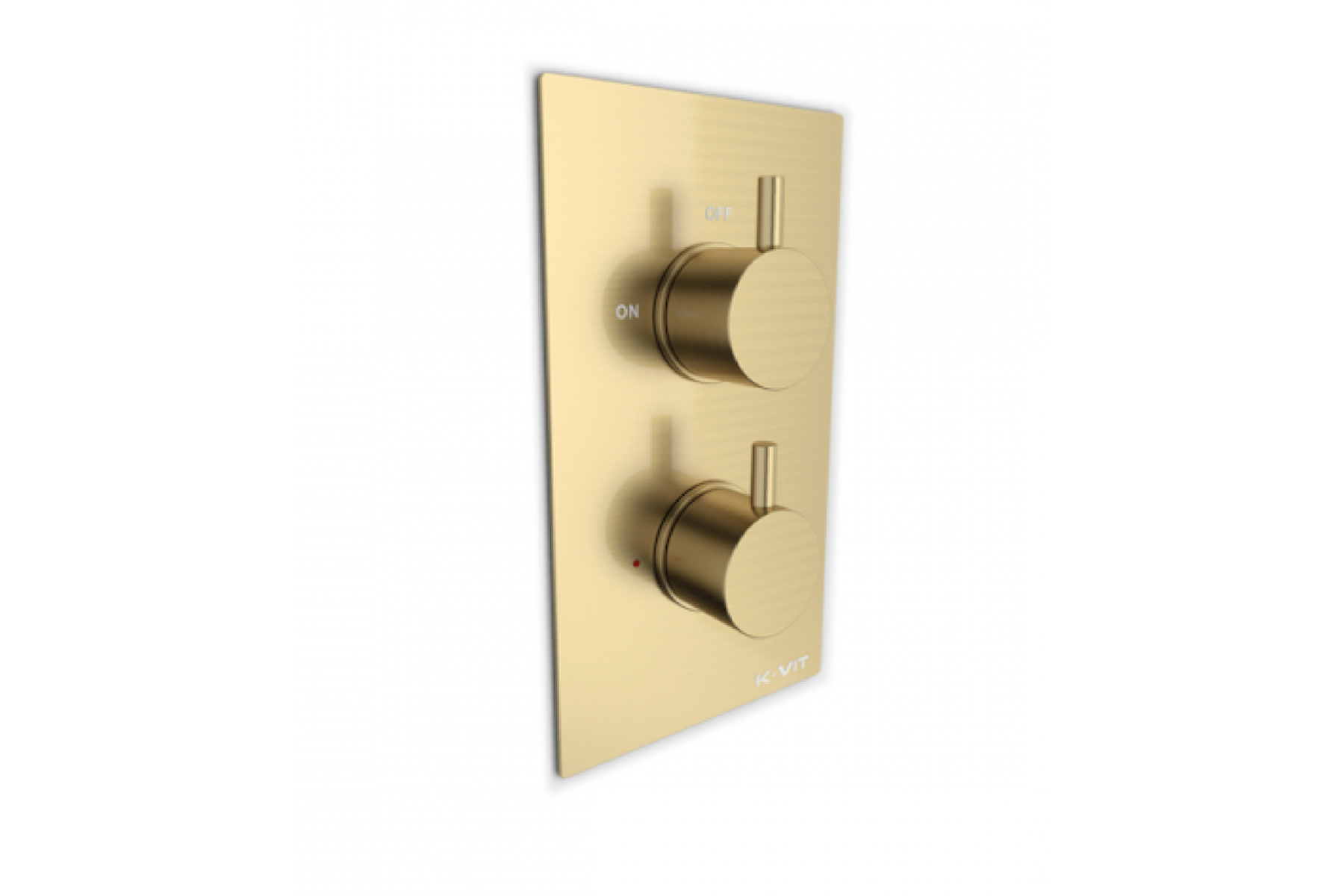
Built In Valve Mixer Showers: In this configuration, the valve is embedded within the wall, but it incorporates an adjustable riser rail within the showering area. This setup offers flexibility in shower head positioning while maintaining a tidy, integrated look.
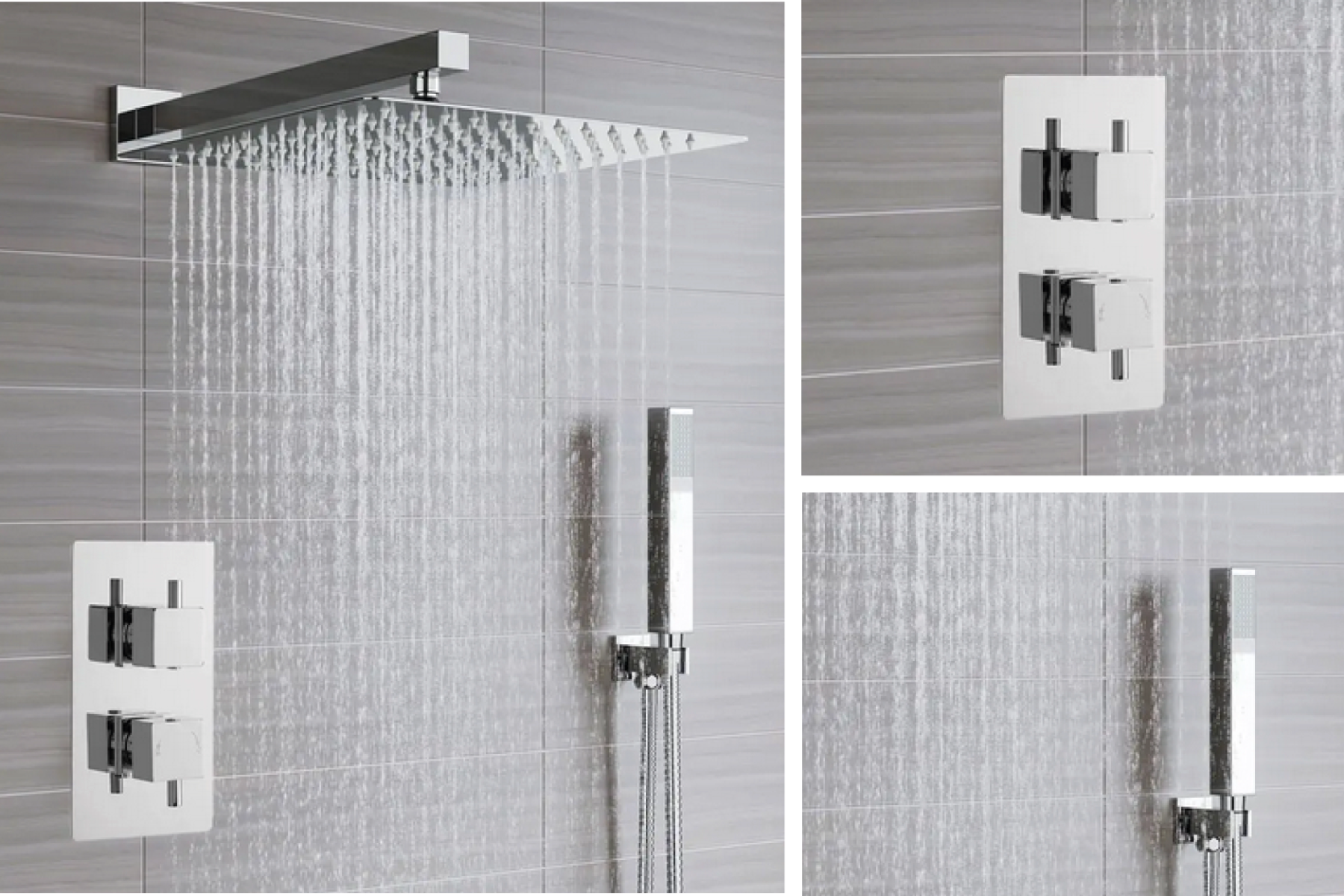
What About The Cost?
Here's a summary of shower installation costs, including the cost ranges for different types of showers and labour:
| Shower Type | Cost Range (Supply & Installation) | Key Features |
|---|---|---|
| Electric Shower | £150 -£300 |
|
| Mixer Shower | £150 - £300 |
|
| Power Shower | £200 - £500 |
|
| Thermostatic Shower | £150 - £300 |
|
| Digital Shower | £250 - £1,000 |
|
Labour Costs:
- Plumbers charge around £50 per hour
- Installation can take upwards of three hours for a straightforward shower.
- Total installation cost typically ranges from £300 to £1,500, including labour and the shower unit.
Factors to Consider:
- Type of shower unit.
- Installation labour costs.
- Additional fixtures, fittings, plumbing, or tiling work.
- Replacing an entire shower will incur additional costs based on material quality and type.
(Note: These numbers are only indicative in nature and don’t necessarily represent the exact cost. Prices may vary depending on the location you’re residing. )
In conclusion, a mixer shower is a fantastic addition to any bathroom. It offers precise control over water temperature, compatibility with various heating systems, and a luxurious showering experience. Whether you're upgrading your shower or building a new bathroom, consider browsing Bathroom Takeaway’s large collection of mixer showers to find the perfect product.
Frequently Asked Questions
Are All Mixer Showers The Same Size?
No, mixer showers come in different sizes and designs to accommodate various bathroom layouts and preferences. It is essential to choose a size and style that fits your space and aesthetic.
Are Mixer Showers Any Good?
Yes, mixer showers are generally a good choice for many households. They offer several advantages like steady and comfortable water temperature, better water pressure, versatile styles and designs, energy efficiency, durability, ease of use, etc.
However, the suitability of a mixer shower depends on your specific needs and the plumbing setup in your home. If you have a reliable hot water supply and good water pressure, a mixer shower is an excellent choice. It's essential to consider factors like water pressure, plumbing system, and budget when deciding if a mixer shower is right for you. Consulting with a plumbing professional can help you determine the best shower system for your particular circumstances.
Are Shower Mixers Universal?
Shower mixers are not universally standardised, but they often adhere to certain common standards and connections.
Can You Use Plastic Pipe For Mixer Shower?
Using plastic pipes for a mixer shower can be feasible in some situations, but it depends on various factors, including local building codes, the type of plastic pipe used, and the specific requirements of your shower installation.
Do Thermostatic Mixer Showers Need Electricity?
No, thermostatic mixer showers do not require electricity to operate. These showers use a mechanical thermostat valve to maintain a consistent water temperature, which does not rely on electricity. The thermostat valve within the mixer shower cartridge automatically adjusts the flow of hot and cold water to maintain the desired temperature, ensuring that you get a steady and comfortable shower experience.
However, it's important to note that some modern thermostatic mixer showers may come with additional features that require electricity, such as digital displays, LED lights, or remote control options. These features, if present, might require an electrical connection, but they are not essential for the basic functioning of the thermostatic mixer shower.
Can You Use A Mixer Shower With A Combi Boiler?
Yes, mixer showers are compatible with combi boilers, as they rely on your home's hot water supply rather than requiring a separafvte heating element like electric showers.
Can You Change an Electric Shower To A Mixer Shower?
Switching from an electric shower to a mixer shower is possible but may require adjustments to your plumbing system. It is advisable to consult a professional plumber for this conversion.
Do Shower Mixers Have Non-Return Valves?
Some mixer showers have non-return valves to prevent backflow, ensuring water flows in the correct direction. Check your specific mixer shower model for this feature.
How Much Does It Cost To Replace A Shower Mixer?
The cost of replacing a shower mixer can vary depending on the type and brand of the mixer, as well as any additional plumbing work required. It's best to obtain quotes from plumbers for an accurate estimate.
Are Electric Showers Better Than Mixer Showers?
The choice between electric and mixer showers depends on your preferences and needs. Electric showers are known for their instant hot water, while mixer showers offer more control over temperature and are often favoured for their luxurious feel.
Which Is Cheaper To Run: Electric Or Mixer Shower?
Mixer showers tend to be more energy-efficient because they use pre-heated water from your home's supply. This can result in lower energy costs compared to electric showers that heat water on-demand.






















